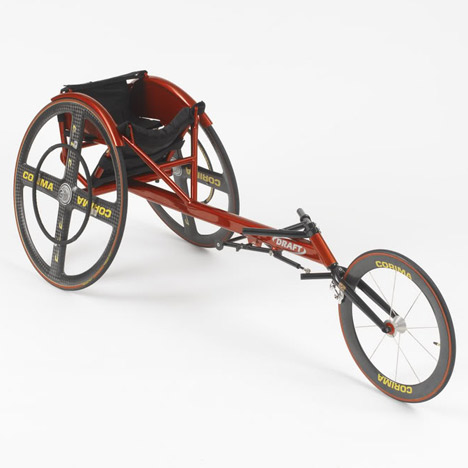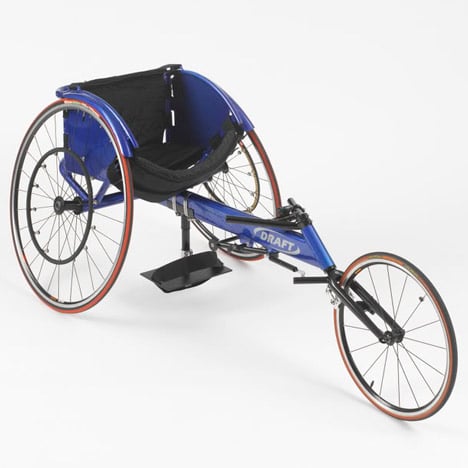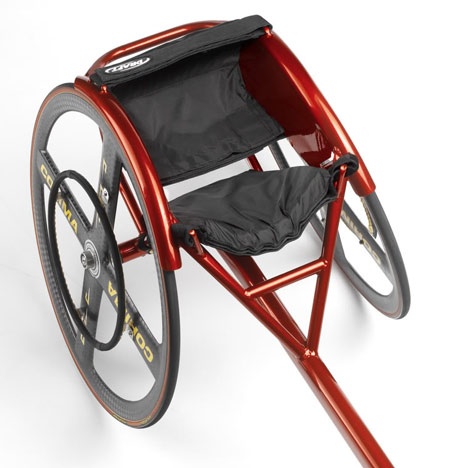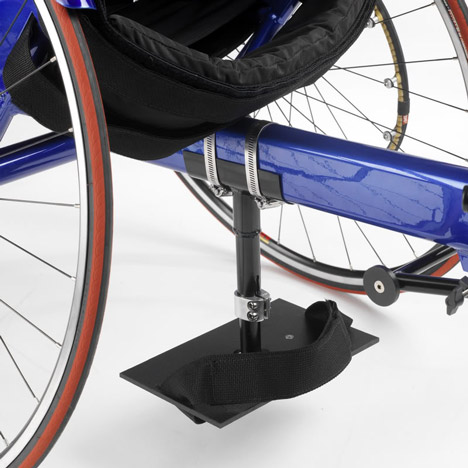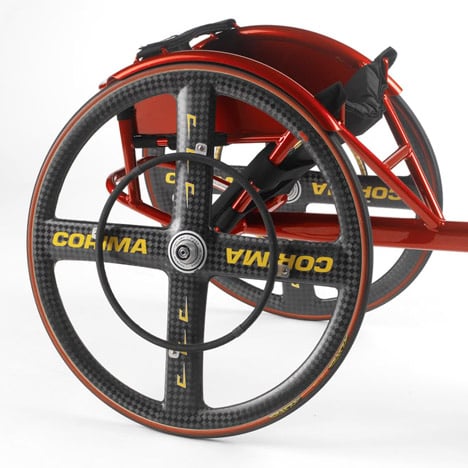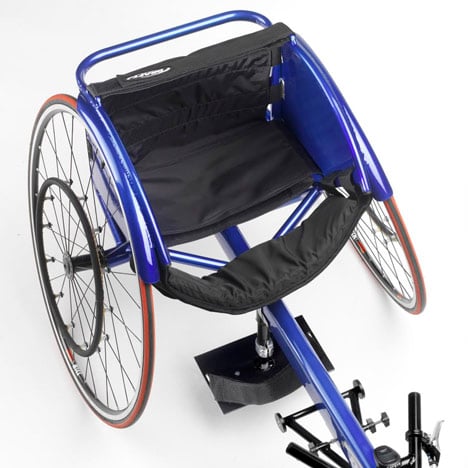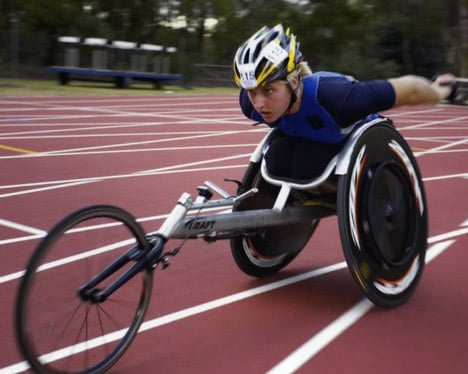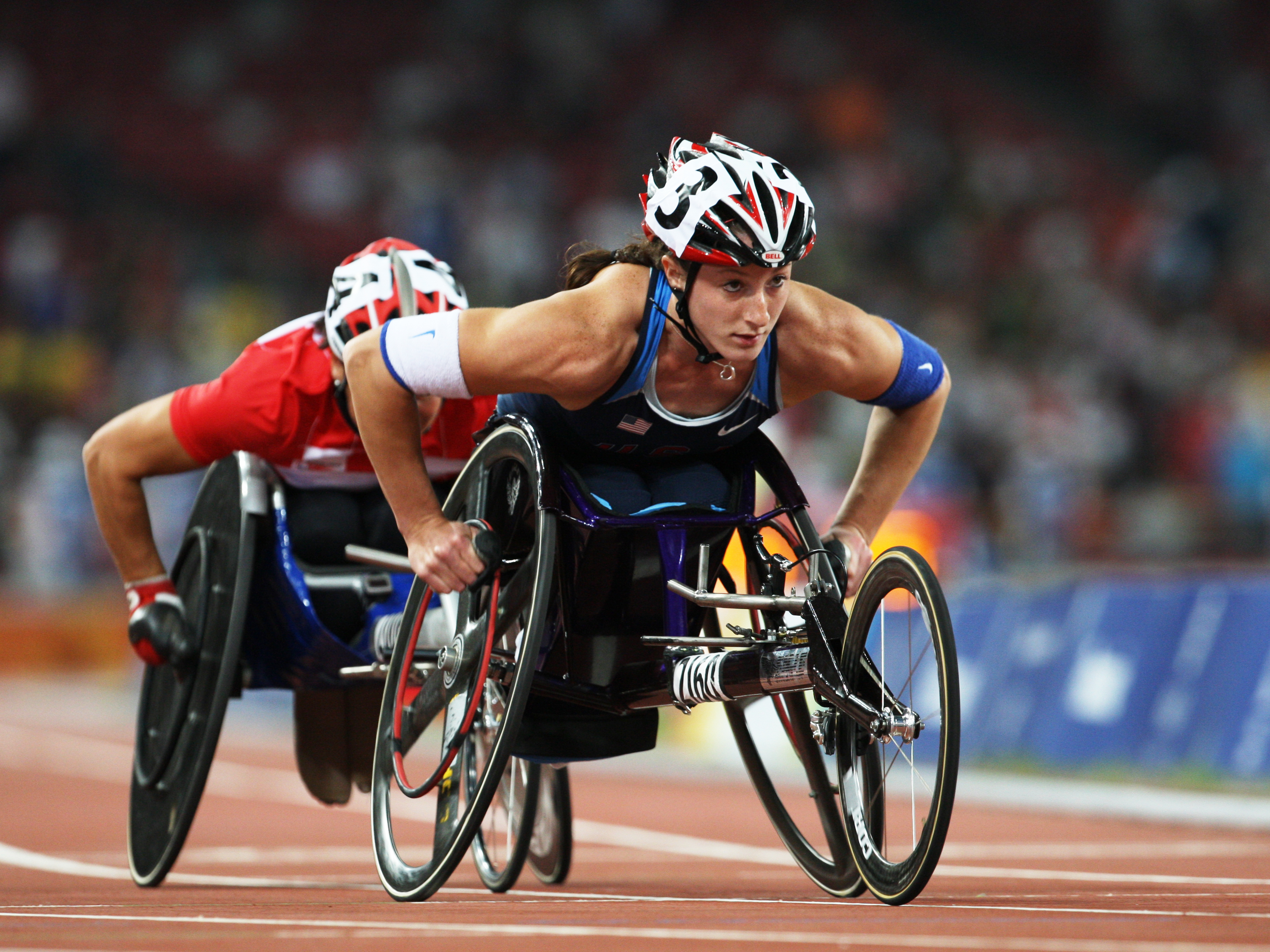'We can't afford to compete with you': France accuses Britain of techno-cheating
The French Paralympic team deputy boss said Brits investment was turning the event 'into Forumla 1'
A French Paralympics official has claimed the British team is guilty of ‘technological doping’ by spending hundreds of thousands of pounds developing cutting-edge wheelchairs that give a significant advantage over poorer countries.
Rudy Van Abeele, the French Paralympic team’s deputy manager, said ParalympicsGB’s investment in state-of-the-art equipment was turning the event into the equivalent of Formula 1.
He even said Britain’s double gold winning track wheelchair racer David Weir would not have reached the finals of his events without his innovative chair.
His comments echoed French complaints at the Olympics, when cycling team director Isabelle Gautheron pointed an accusing finger at the British and their ‘magic wheels’.
And Jamaica joined in the new row, claiming it had not entered a single track wheelchair racer because of the costs involved.
Mr Van Abeele said: ‘The Paralympics is becoming like Formula 1. For me the wheelchair is at least 25 per cent of the performance and Britain has the most advanced technology.
‘It’s technological doping because it is not available for everybody.’
Asked how British world record holder David Weir would have fared in a wheelchair used by a poorer country, Mr Van Abeele said: ‘He would not even be in the final. The wheelchair’s balance is built for him.
‘The cost is around £5,000 to £7,000. Those amounts for some people are more than they can get in their lives. It’s very sad.’
Last week, The Mail on Sunday revealed UK Sport had spent £700,000 on wheelchair research and innovation.
To assess aerodynamic efficiency, wheelchairs have been blasted with air in wind tunnels built by defence firm BAE Systems and used to develop the Eurofighter Typhoon jet. Manoeuvrability has been measured using cutting-edge tracking technology developed by Formula 1 team McLaren, while the seats have been created by car firm BMW.
One argument for Paralympic teams being allowed unlimited investment is that the technology can later be adapted to help disabled people in the real world.
However, Mr Van Abeele said that the equipment being used by the British was so personalised that it was difficult for rival competitors to use it, let alone disabled people in everyday life.
The Secretary-General of the Jamaican Paralympic Committee, Suzanne Harris-Henry, said the high cost of competitive chairs had priced the Jamaican team out of entering the wheelchair events.
‘There is no point taking part if you don’t have the money to buy a good enough wheelchair,’ she said. ‘The cheapest ones cost £2,200 which we cannot afford.’
A British Paralympic Association spokesman said: ‘Our job, backed by funding from the lottery and commercial sponsors, is to make our athletes the best prepared to compete and win on the world stage, cleanly and fairly.
'We are aware that in the UK we are lucky with our funding and have a world-renowned science and engineering sector.’

Racing wheelchairs now weigh around three times less than they did 60 years ago, helping athletes reach 25mph.
Britons Shelly Woods and David Weir went the extra mile by visiting an Airbus base for wind-tunnel tests where engineers analysed the efficiency of their body positions and the chair’s design. This involved them being blasted by 30mph winds.
Team sport chairs are now designed purely for speed, acceleration and precision – athletes used to use their day chairs – with some players going as fast as 10mph.
The French Paralympic team deputy boss said Brits investment was turning the event 'into Forumla 1'
A French Paralympics official has claimed the British team is guilty of ‘technological doping’ by spending hundreds of thousands of pounds developing cutting-edge wheelchairs that give a significant advantage over poorer countries.
Rudy Van Abeele, the French Paralympic team’s deputy manager, said ParalympicsGB’s investment in state-of-the-art equipment was turning the event into the equivalent of Formula 1.
He even said Britain’s double gold winning track wheelchair racer David Weir would not have reached the finals of his events without his innovative chair.
His comments echoed French complaints at the Olympics, when cycling team director Isabelle Gautheron pointed an accusing finger at the British and their ‘magic wheels’.
And Jamaica joined in the new row, claiming it had not entered a single track wheelchair racer because of the costs involved.
Mr Van Abeele said: ‘The Paralympics is becoming like Formula 1. For me the wheelchair is at least 25 per cent of the performance and Britain has the most advanced technology.
‘It’s technological doping because it is not available for everybody.’
Asked how British world record holder David Weir would have fared in a wheelchair used by a poorer country, Mr Van Abeele said: ‘He would not even be in the final. The wheelchair’s balance is built for him.
‘The cost is around £5,000 to £7,000. Those amounts for some people are more than they can get in their lives. It’s very sad.’
Last week, The Mail on Sunday revealed UK Sport had spent £700,000 on wheelchair research and innovation.
To assess aerodynamic efficiency, wheelchairs have been blasted with air in wind tunnels built by defence firm BAE Systems and used to develop the Eurofighter Typhoon jet. Manoeuvrability has been measured using cutting-edge tracking technology developed by Formula 1 team McLaren, while the seats have been created by car firm BMW.
One argument for Paralympic teams being allowed unlimited investment is that the technology can later be adapted to help disabled people in the real world.
However, Mr Van Abeele said that the equipment being used by the British was so personalised that it was difficult for rival competitors to use it, let alone disabled people in everyday life.
The Secretary-General of the Jamaican Paralympic Committee, Suzanne Harris-Henry, said the high cost of competitive chairs had priced the Jamaican team out of entering the wheelchair events.
‘There is no point taking part if you don’t have the money to buy a good enough wheelchair,’ she said. ‘The cheapest ones cost £2,200 which we cannot afford.’
A British Paralympic Association spokesman said: ‘Our job, backed by funding from the lottery and commercial sponsors, is to make our athletes the best prepared to compete and win on the world stage, cleanly and fairly.
'We are aware that in the UK we are lucky with our funding and have a world-renowned science and engineering sector.’

Racing wheelchairs now weigh around three times less than they did 60 years ago, helping athletes reach 25mph.
Britons Shelly Woods and David Weir went the extra mile by visiting an Airbus base for wind-tunnel tests where engineers analysed the efficiency of their body positions and the chair’s design. This involved them being blasted by 30mph winds.
Team sport chairs are now designed purely for speed, acceleration and precision – athletes used to use their day chairs – with some players going as fast as 10mph.
Last edited:

